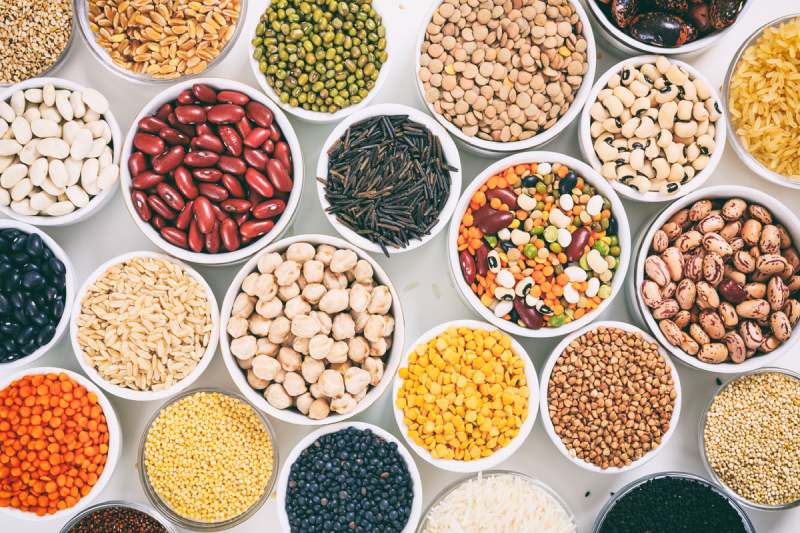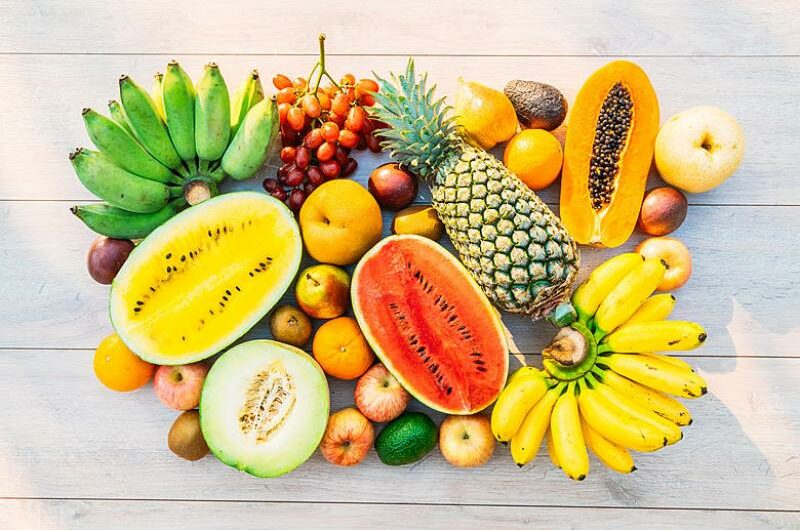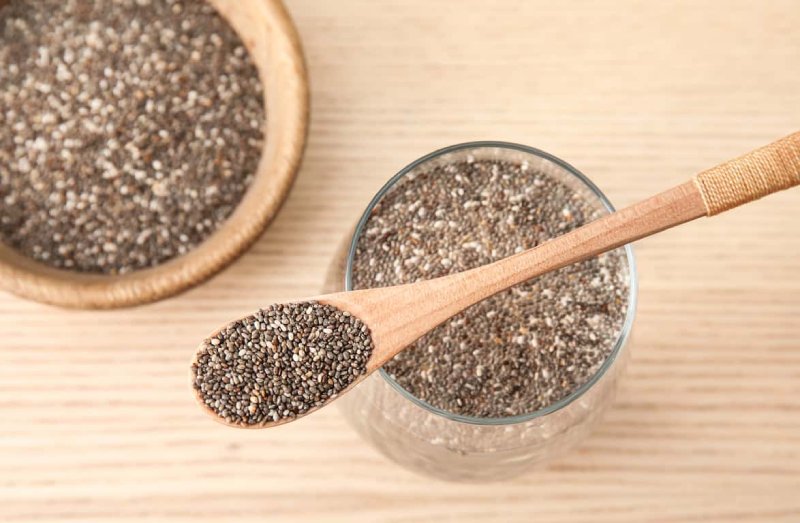If you belong to the “sensitive stomach” group, you may find it quite difficult to navigate the world of healthy food. Anxiety about whether the food served (or even the coffee offered) will trigger a flare-up of pain or other unpleasant symptoms can accompany every meal, party, and catered event.
However, if you eat a plant-based diet, these difficulties may worsen because many of the main vegan protein sources are also foods that may trigger gastrointestinal issues. For this reason, it’s even more crucial to understand which plant-based proteins are the best for sensitive stomachs. As if being a vegan and still getting your protein requirements wasn’t difficult enough.
However, for people with sensitive stomachs, a wide variety of vegan foods high in protein are less likely to cause undesirable effects.
What does “Sensitive Stomach” Mean?
According to registered dietitian Bianca Tamburello, RDN, of FRESH Communications, “the term’sensitive stomach’ is commonly used when a person frequently experiences unpleasant gastrointestinal symptoms like bloating, gas, diarrhea, and constipation that are triggered by foods.” Additional symptoms might be heartburn, acid reflux, indigestion, nausea, vomiting, and abdominal discomfort.
These signs could be brought on by a wide range of situations. According to Tamburello, “some people have sensitive stomachs that are easily upset, while others may have GI problems that can be diagnosed, like irritable bowel syndrome, for example.” Food allergies and sensitivities, gastroparesis, celiac disease, and inflammatory bowel disease are additional illnesses that may contribute to symptoms of sensitive stomach.
Identifying Triggers for Sensitive Stomachs
It can be rather challenging to try and identify the underlying cause of symptoms related to sensitive stomach because there are so many possible sources. While there are some helpful advice, such as eating slower, drinking more water, lowering stress levels, and consuming less coffee, identifying one’s trigger foods is usually the most efficient approach to lessen or stop symptoms.
Triggers might be as simple as one cause, such as cashews or spicy foods, or they can be as complicated as whole classes of carbs. Many people use the low-FODMAP diet as a typical technique to figure out what is causing their sensitive stomach issues. Fermentable oligosaccharides, disaccharides, monosaccharides, and polyols, or FODMAPs, are a group of carbohydrates that have been shown to be more likely in certain individuals to induce unpleasant gastrointestinal symptoms.
Regretfully, a lot of the greatest plant-based protein sources rank highly on the list of foods high in fructooligosaccharides (FODMAPS), such as wheat, legumes (beans, peas, and lentils), and several higher protein vegetables (broccoli, artichokes). For example, legumes are high in nutrients, high in fiber, and high in protein, but they can be difficult to digest, particularly when the stomach is disturbed, according to Tamburello.
The Significance of Protein
As you may guess, protein is an essential part of a well-balanced diet. “Protein is essential for maintaining regular bodily processes and helps the body carry oxygen. Our skin, bones, and hair are composed of protein in addition to muscle, says Tamburello. Additionally, practically every other essential structure in the body that comes to mind depends on protein.
The amount of protein we should eat each day varies significantly based on our age, height, weight, and degree of activity. The standard formula for calculating an individual’s daily protein requirements is 0.8 grams of protein per kilogram of body weight; however, the U.S. Dietary Guidelines for Americans indicate that men and women require approximately 56 and 46 grams of protein, respectively, per day.
Ten Plant-Based Proteins that are Gentle on Delicate Stomachs
What possibilities does this leave for sensitive-toothed plant-based eaters when it comes to protein? Before making any lifestyle changes, you should always consult a doctor if you have persistent sensitive stomach problems. Here are ten excellent plant-based protein sources that may be less irritating for people who experience gastrointestinal issues.
1. Oats
Oats are surprisingly high in protein, despite not being commonly recognized as a strong source of this macronutrient. Six grams of protein can be found in one cup of cooked whole grain oats, which can help you reach your daily protein targets. Oats taste great served as hot porridge in the morning, cold overnight oats straight from the refrigerator, or pulverized and added to a variety of baked items in place of wheat flour.
2. Nut Butter
Nut butters like peanut butter may also be a suitable option, depending on your symptoms. For example, two tablespoons of peanut butter provide seven grams of protein. Nut butters make a great complement to smoothies, toast, porridge, and baked goods. They also make a delectable fruit dip.
3. Nutritional Yeast
Nutritional yeast, often referred to as “nootch” by product enthusiasts, is frequently used as a cheese alternative by plant-based diets (as well as by many omnivores). It is a nutritional powerhouse, however, with significant levels of zinc, selenium, B vitamins like B12, thiamin, riboflavin, and niacin in addition to its delicious flavor. Complete protein, or protein that contains all nine necessary amino acids required by the body to fully utilize protein, is another great quality that nutritional yeast offers. Nutritional yeast contains an amazing eight grams of protein in just under two tablespoons.
4. Soy-Based Goods
While some people with sensitive stomachs may find that they can take soybeans better than others, soybeans in their complete form can be bothersome to certain people. “High in protein but low in fiber and easy to digest are options like tofu (10 grams of protein in half a cup) and soy milk (8 grams of protein in one cup),” says Tamburello. The fact that all soy products contain full proteins is an additional benefit.
5. Hemp Hearts
Hemp hearts, also known as hemp seeds, are an excellent high-protein complement for people who have sensitive stomachs and are another complete protein. These small seeds can be easily (and undetectably) added to smoothies, salads, and dressings because they provide nine grams of protein in only three tablespoons.
6. Grains of Brown Rice
According to Tamburello, “whole grains can be easier to digest than legumes and offer a fair amount of protein.” Moreover, brown rice, which has 5.5 grams of protein per cup, is one whole grain that can be very calming for an upset stomach.
7. Spirulina
Seaweed products, particularly the blue-green algae known as spirulina, have become extremely popular in recent years due to their remarkable health advantages. With just two tablespoons, this complete protein provides an incredibly high eight grams of protein. For most people with sensitive stomachs, spirulina should be a safe addition, especially because it’s almost always available in powdered form, which facilitates even better digestion.
8. Quinoa
Another complete protein derived from plants that is likely to be well-absorbed by individuals with sensitive stomachs. Although quinoa is actually a seed, it is frequently combined with whole grains because of how similarly it cooks and the variety of ways it may be prepared. You can receive about eight grams of cooked protein in one cup, along with a lot of fiber and minerals including magnesium, potassium, iron, folate, and plant components.
9. Chia Seeds
Just with hemp hearts, chia seeds are a low-irritating, high-protein choice for people with sensitive stomachs (flax seeds would also fall into this category). It is also a complete protein and provides five grams in two to three tablespoons, making it ideal for adding to a variety of dishes, including baked goods, oats, smoothies, chia pudding, and grain bowls.
10. Millet
Not only is millet a delicious but highly nutritious ancient grain that is free of gluten and gluten, but it’s also a great source of fiber, B vitamins, minerals, and—surprisingly—protein. A single cooked cup provides an impressive six grams of protein and works well as a tasty replacement for rice or quinoa in most recipes.
Topics #Plant-Based Proteins










